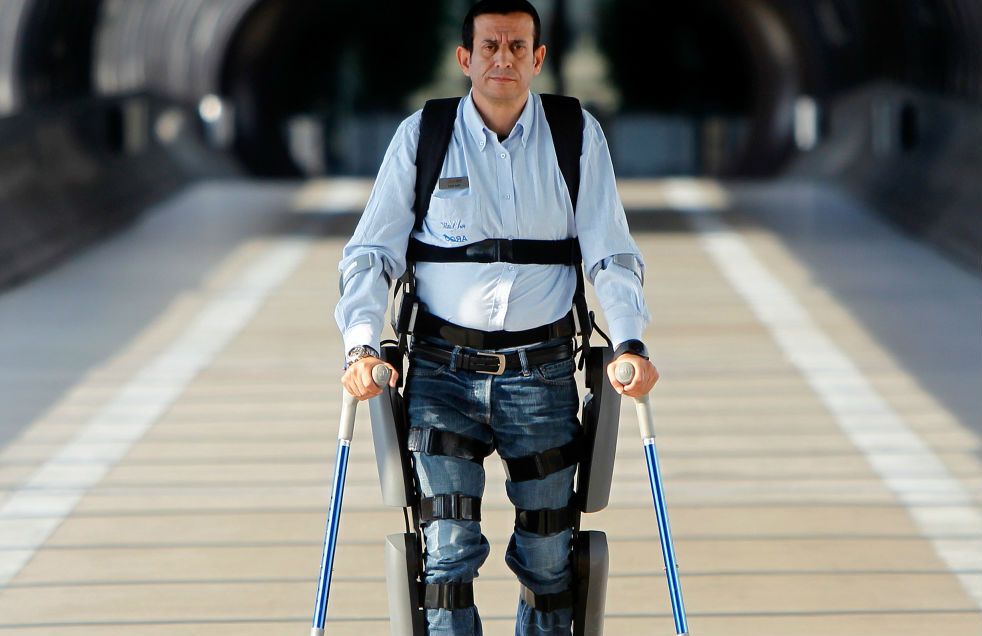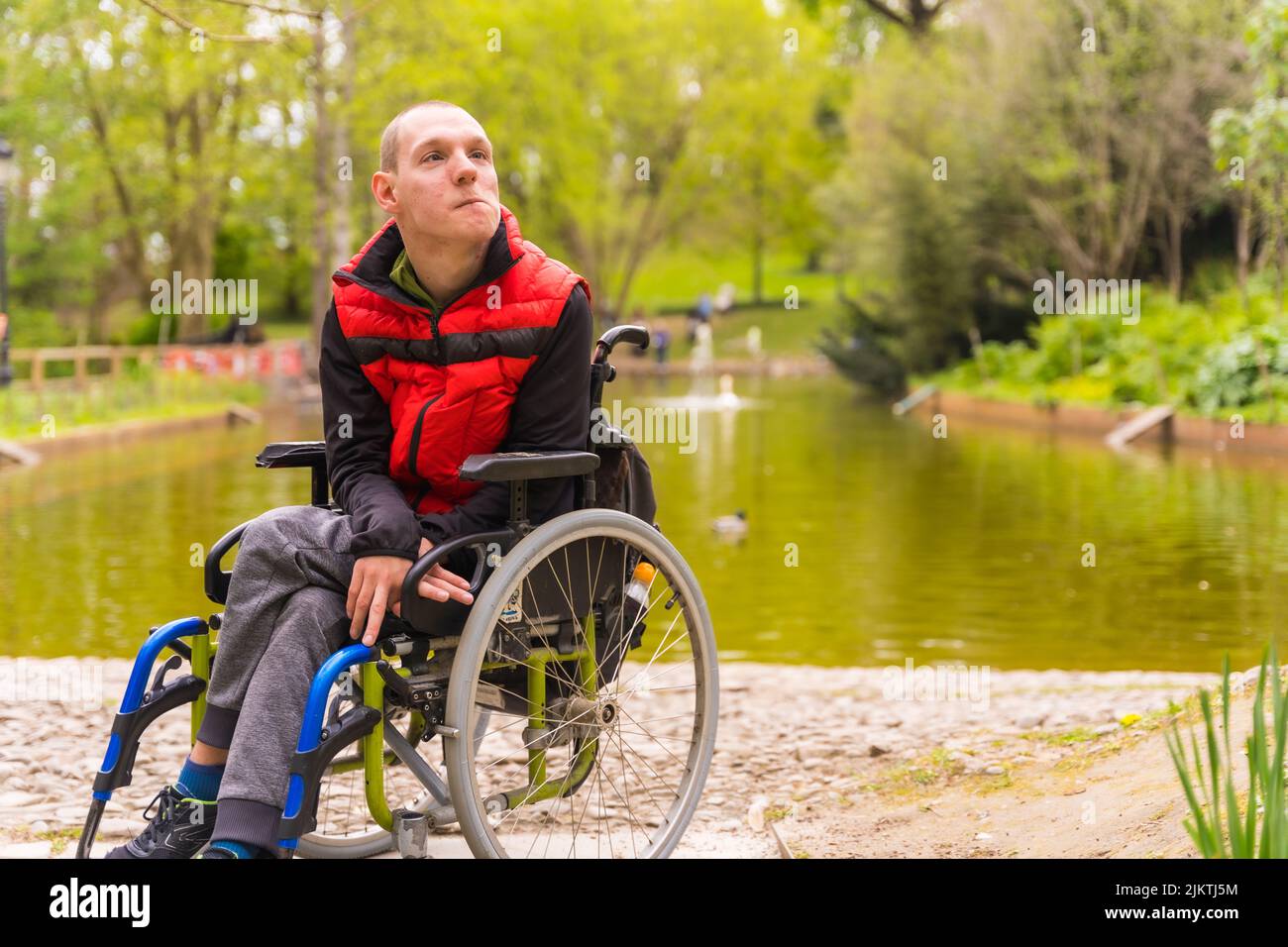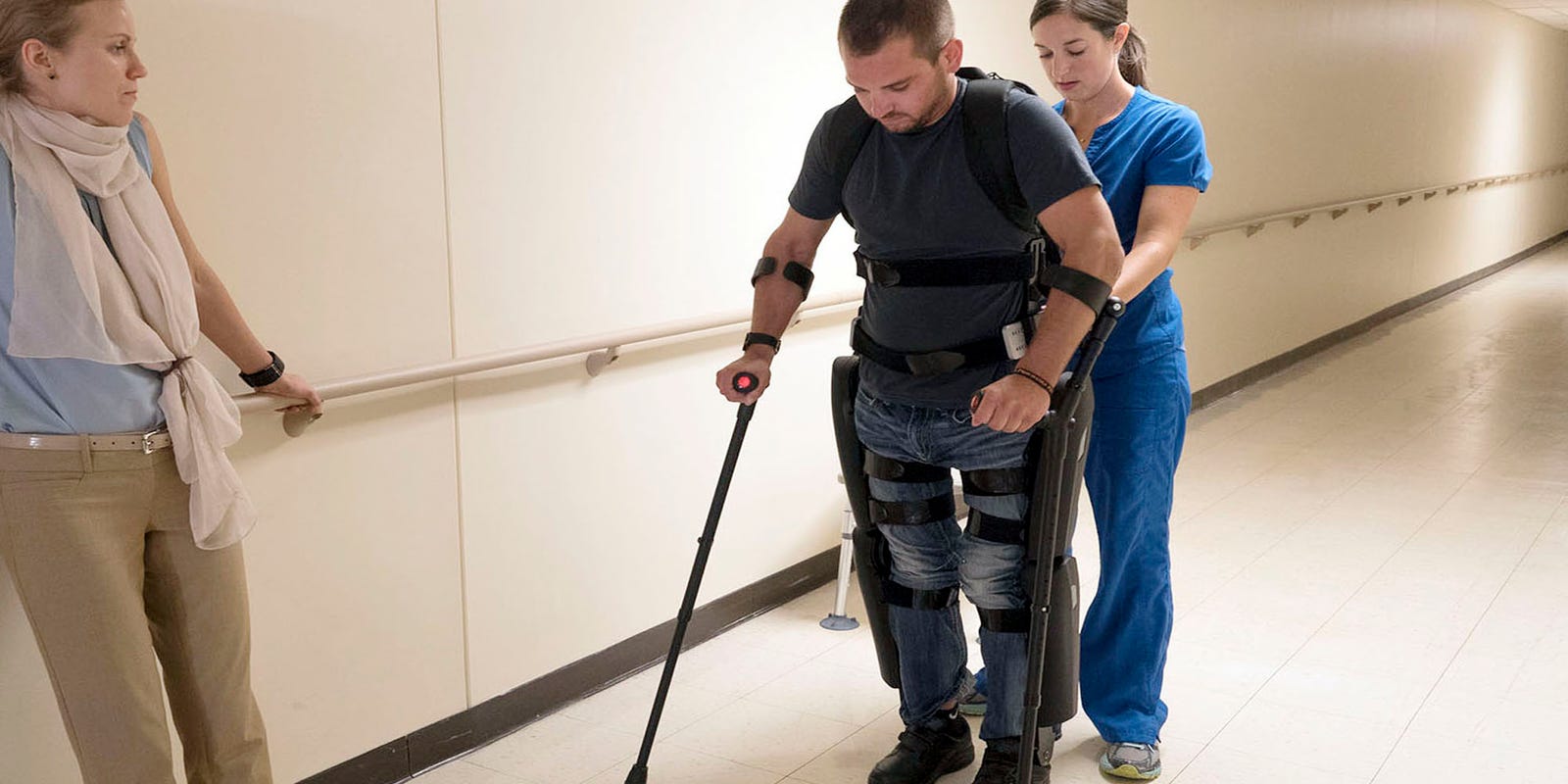The journey of a Rutgers football player, whose life took an unexpected turn after an injury led to paralysis, truly shows us what it means to be resilient. This athlete, once soaring on the field, now faces a different kind of challenge, one that calls for immense courage and a spirit that refuses to be broken. It’s a story that, you know, really touches your heart, making us think about the sudden changes life can bring.
This player's experience shines a light on the profound impact such an event can have, not just on an individual, but on their loved ones and the entire community around them. It's about adapting to a new way of living, finding inner power when physical abilities shift, and, in some respects, redefining what success looks like off the playing field. Their story, you see, is far more than just about a physical condition; it's about the human spirit's remarkable ability to adjust and keep going.
We'll explore what it means to experience paralysis, how it affects someone's day-to-day existence, and the incredible journey of a Rutgers football player who is, quite literally, moving forward one step at a time. This discussion will, you know, offer a closer look at the challenges and triumphs that come with such a significant life change, shedding light on a path many might not fully grasp.
- November 5 Zodiac Signs
- Scary Costumes For Girls
- Giving Birth On A Toilet
- Best Shampoo And Conditioner For Frizzy Hair
- How To Pronounce Mariska Hargitay
Table of Contents
- Michael - A Rutgers Story of Grit
- What Does It Really Mean to Be Paralyzed?
- What Are Some Common Reasons for Paralysis?
- Life Beyond the Field - Adapting and Thriving
- The Road Ahead - Hopes and Progress
Michael - A Rutgers Story of Grit
Let's consider the story of a young man we'll call Michael, a standout player for the Rutgers Scarlet Knights. Michael, like many college athletes, poured his heart and soul into the game, dreaming of a future on the professional gridiron. He was known for his speed and his ability to read the plays, a true asset to the team. His days were filled with practice, classes, and the camaraderie that comes with being part of a close-knit group. Then, one moment on the field, a tackle went wrong, and everything changed. It was a play that, you know, altered the course of his life in an instant.
Michael's situation, while unique to him, mirrors the experiences of others who face sudden physical challenges. His path since that day has been one of immense adjustment, learning to do things differently, and finding new ways to connect with the world around him. The support from his family, teammates, and the wider Rutgers community has, in a way, been a pillar for him. He's had to find a new kind of strength, one that doesn't come from pushing through defenders, but from pushing through personal limits, which is, honestly, a different kind of tough.
Here are some general details that might describe a player like Michael:
- Kelsey Glover Florida
- Gronkowski Commercials
- Dehydrated Patrick
- Whitney Martin Wedding
- Dominik Mysterio And Rhea Ripley Together
| Detail | Description |
|---|---|
| Name | Michael (fictional example) |
| Age at Injury | Around 20 years old |
| Position | Linebacker |
| Hometown | New Jersey |
| Major | Sports Management |
| Injury Cause | Spinal Cord Injury from football incident |
| Current Status | Undergoing rehabilitation and pursuing academic goals |
What Does It Really Mean to Be Paralyzed?
When someone can't get certain parts of their body to move, it's often because the messages from their brain aren't getting through, you know, to those specific spots. This situation, it can show up in lots of different ways, too. Basically, it means a body part, or even the whole body, feels weak, either a little bit or completely unable to function. This change, it might just happen all at once, or it could, in some respects, come on slowly, often because something has impacted the brain or the spinal cord. When we say someone is 'paralyzed,' it just means they're experiencing this condition, which is, honestly, a pretty straightforward way to put it.
If those tiny electrical messages, the ones that tell your muscles what to do, get messed up somehow, then a person might find themselves unable to make their body move on purpose, you know, just like they want to. It's also sometimes called 'plegia,' and it really means that one or more muscles have lost their ability to do their job. Sometimes, along with not being able to move, there's also a loss of feeling, you know, in that part of the body. It's about being made unable to move or act, or having something stop working as it should, which is, basically, a huge life adjustment.
At its core, paralysis is when a part of your body's muscles just don't work anymore. It could be just one spot, or a lot of places, a little bit or totally, and it might be for a short time or for good, you know. This condition, it can affect pretty much any part of someone's body. A person who is paralyzed might find they can't move a section of their body, or even their whole body, and this usually happens because the body's communication system, the nervous system, has been hurt in some way. This can come about for different reasons, like, for instance, a sudden injury or a health condition that develops over time, which is, actually, quite varied.
How Does the Body's Communication System Get Affected?
Our bodies have this amazing communication network, sort of like a very intricate set of wires, that sends messages from our brain to every muscle and back again. When something goes wrong with these "wires," especially in the brain or the spinal cord, those messages can't get through properly. It's a bit like a phone line getting cut; the signal just doesn't reach its destination. This interruption means the brain can't tell the muscles what to do, or, conversely, the muscles can't send signals back about what they're feeling. That's, in a way, what happens when paralysis sets in.
For a Rutgers football player, an injury on the field could mean a direct hit or twist to the spine, damaging the delicate spinal cord. This cord is, basically, the main highway for those messages. If it's hurt, even a little bit, the signals can get blocked, leading to a loss of movement or feeling below the point of injury. It's a complex system, and when it's disrupted, the consequences can be quite significant, you know, for someone's ability to move and feel. Even something like the diaphragm, that's the muscle we use to breathe, it can also, you know, become unable to function or get hurt for different reasons, highlighting how widespread these issues can be.
What Are Some Common Reasons for Paralysis?
Things that often lead to this kind of change include, for instance, a sudden accident, like a car crash or a sports injury, which is, unfortunately, what happened to our hypothetical Rutgers football player. But it's not just accidents. Certain health issues can also cause it. Think about a stroke, which affects the brain's ability to send signals, or conditions that slowly wear down the nervous system, like multiple sclerosis. Infections, or even certain birth conditions, can also play a role. It's a really broad range of causes, you know, that can lead to someone losing the ability to move parts of their body.
Sometimes, the cause isn't immediately clear, or it develops over a long period. For example, some people might experience temporary paralysis from something like Bell's palsy, which affects facial muscles, and then it gets better. Others might have conditions that cause a gradual weakening over time. The body's systems are, in some respects, incredibly delicate, and many different things can upset their balance, leading to these kinds of movement challenges. Knowing the specific reason is, typically, a big part of figuring out how to best help someone, as a matter of fact.
The Impact on a Paralyzed Rutgers Football Player's Life
For a Rutgers football player, someone like Michael, who built his life around physical activity and competition, the impact of paralysis is, obviously, huge. It means a sudden halt to a career path, a change in daily routines, and a need to rethink almost every aspect of life. The mental and emotional toll can be as significant as the physical one. Imagine, you know, going from running across a field to needing help with basic movements. It's a massive adjustment that requires a lot of inner strength and, really, a new way of seeing the world.
Beyond the physical limitations, there are practical challenges. Things like getting around, adapting one's home, and finding new ways to participate in social activities become central. There's also the financial aspect of long-term care and specialized equipment. Yet, for many, like our Rutgers athlete, this doesn't mean the end of their story. It's, basically, the start of a different chapter, one where they find new passions, advocate for others, and continue to inspire. Their journey shows that, at the end of the day, true strength isn't just about what your body can do, but what your spirit can overcome.
Life Beyond the Field - Adapting and Thriving
Life after a significant injury, especially one leading to paralysis, becomes a journey of adaptation. For a Rutgers football player, this might mean swapping the weight room for a rehabilitation center, and the playbook for a therapy schedule. It's about learning new ways to perform everyday tasks, sometimes with the help of assistive devices, and finding new hobbies or pursuits that bring joy and a sense of purpose. This process is, you know, often slow and takes a lot of patience, but it's where true resilience shines through. It's about celebrating small wins, like being able to do something independently that was once a struggle.
Many individuals in this situation find incredible ways to thrive. They might return to school, pursue different careers, become advocates for people with disabilities, or even take up adaptive sports. The spirit that drove them on the football field can be channeled into these new endeavors. It's about discovering that while one door might have closed, many others can open, leading to fulfilling and meaningful lives. This shift in focus is, in some respects, a testament to the human capacity for growth and change, even when faced with what seems like insurmountable obstacles.
What Kinds of Support Help a Paralyzed Rutgers Football Player?
The path to adapting after paralysis is rarely walked alone. For a paralyzed Rutgers football player, a strong support system is, honestly, absolutely vital. This usually starts with family and close friends, who provide emotional comfort and practical help. Beyond that, there's a whole network of professionals. Physical therapists help regain as much movement and strength as possible, or learn new ways to move. Occupational therapists focus on daily living skills, like getting dressed or preparing food, helping someone become more independent. Speech therapists might be involved if communication is affected. It's a team effort, basically, to help someone rebuild their life.
Then there are support groups, where individuals can connect with others facing similar challenges. Sharing experiences and tips can be incredibly empowering. Mental health professionals also play a crucial role in helping someone cope with the emotional impact of such a profound change. Financial planning and legal assistance are also, you know, often necessary to handle the costs of care and ensure access to resources. The Rutgers community itself, with its alumni network and resources, can also offer significant backing, showing that, at the end of the day, no one has to go through this alone.
The Road Ahead - Hopes and Progress
The future for a paralyzed Rutgers football player, or anyone living with paralysis, is one of ongoing progress and hope. Medical science is, quite literally, always moving forward, with new research and treatments emerging that aim to restore function or improve quality of life. Things like advanced prosthetics, nerve regeneration studies, and robotic assistance are constantly being developed, offering possibilities that were once just dreams. While not every solution is right for everyone, the continuous pursuit of better care and technology provides a lot of optimism, you know, for what's to come.
Beyond medical advancements, there's also a growing awareness and push for greater accessibility and inclusion in society. This means making public spaces easier to get around, ensuring equal opportunities in education and work, and changing perceptions about what people with disabilities can achieve. For a former athlete, this might mean finding new ways to stay involved in sports, perhaps as a coach or a mentor, or even participating in adaptive sports. The journey is, in some respects, about finding new ways to contribute and live a full, meaningful life, proving that, essentially, a physical challenge doesn't define a person's entire existence.
The story of a paralyzed Rutgers football player serves as a powerful reminder of human strength and the importance of community. It highlights the realities of living with paralysis, from the scientific aspects of nerve signal disruption and muscle function loss to the personal journey of adapting to a new body and life. We've looked at what paralysis truly means, the various reasons it can occur, and the profound impact it has, especially on someone whose life revolved around physical prowess. We also explored the critical role of comprehensive support systems and the continuous hope offered by medical advancements and societal shifts towards greater inclusion. This athlete's path, you know, really shows us the power of perseverance and the spirit of moving forward, no matter what.
- Jared Dodd
- November 5 Zodiac Signs
- Nickminaj Naked
- Hennessy Juice Wrld
- Why Does My Baby Crawl With One Leg Up


